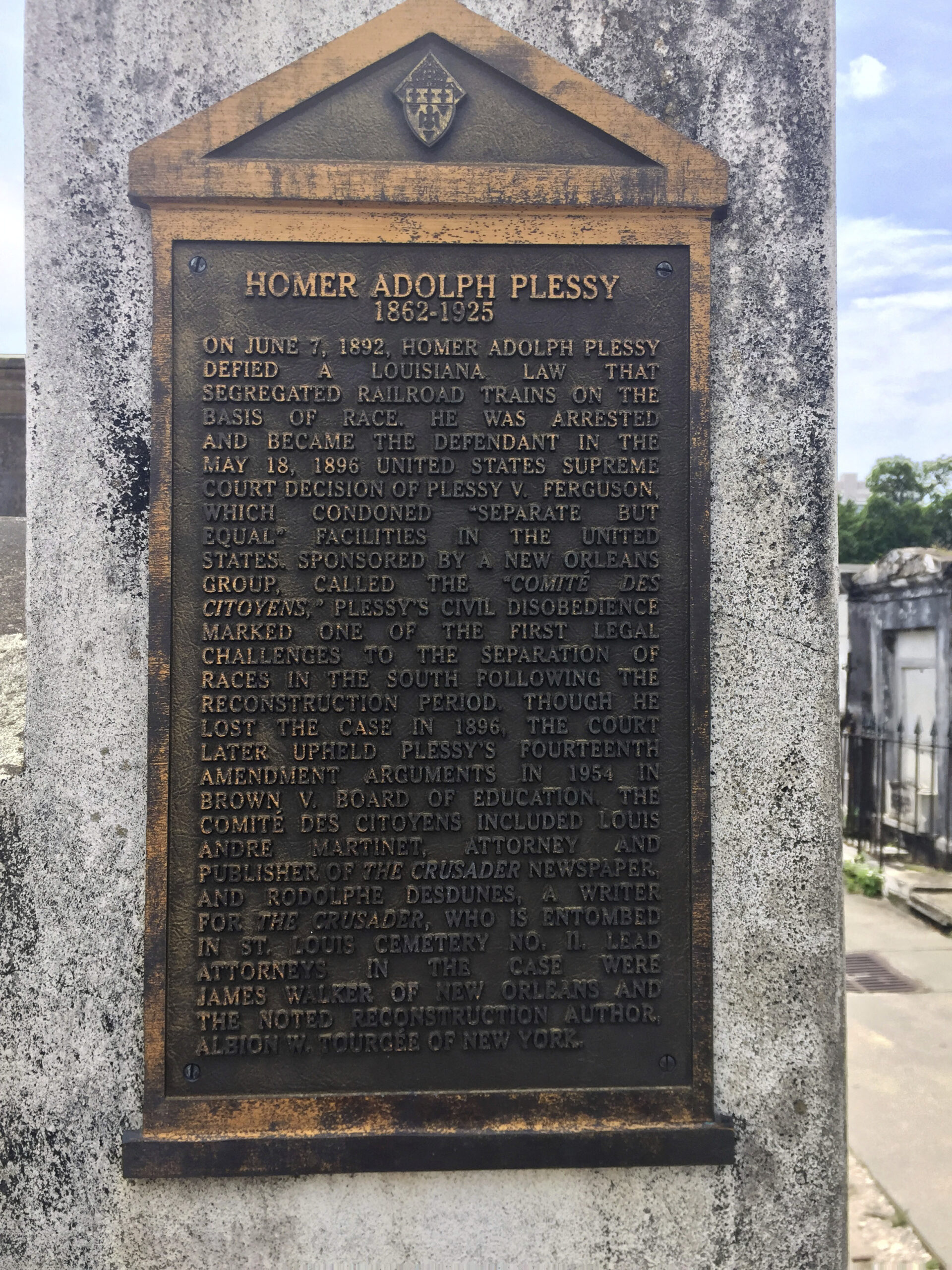
This article is republished here with permission from The Associated Press. This content is shared here because the topic may interest Snopes readers; it does not, however, represent the work of Snopes fact-checkers or editors.
NEW ORLEANS (AP) — A Louisiana board on Friday voted to pardon Homer Plessy, whose decision to sit in a “whites-only” railroad car to protest discrimination led to the U.S. Supreme Court’s 1896 “separate but equal” ruling affirming state segregation laws.
The state Board of Pardons’ unanimous decision to clear the Creole man’s record of a conviction now goes to Gov. John Bel Edwards, who has final say over the pardon. He was out of state and not immediately available for comment.
The Plessy v. Ferguson decision cemented racial segregation for another half-century, justifying whites-only spaces in trains and buses, hotels, theaters, schools and other public accommodations until the Supreme Court unanimously overruled it with their Brown v. the Board of Education decision in 1954. That decision led to the widespread desegregation of schools and the eventual stripping away of vestiges of the Jim Crow laws that discriminated against Black citizens.
Keith Plessy, 64, who is descended from a cousin of Homer Plessy’s, told the board that he remembers meeting civil rights icon Rosa Parks, who refused in 1955 to leave a whites-only seat on a bus in Birmingham, Alabama, and kneeling to honor her.
“She said to me, ‘Get up boy, your name is Plessy — you’ve got work to do,’” Keith Plessy said.
Homer Plessy was arrested in 1892 after boarding the train car as part of an effort by civil rights activists to challenge a state law that mandated segregated seating.
Described in the Supreme Court ruling as “of seven eighths Caucasian and one eighth African blood,” Plessy could have passed for white. More than six decades before Parks was arrested in Alabama, police forcibly removed Plessy from the car, and he was imprisoned in the parish jail, the court ruling states.
The Supreme Court ruled in Plessy v. Ferguson that state racial segregation laws didn’t violate the Constitution as long as the facilities for the races were of equal quality.
Plessy pleaded guilty to violating the Separate Car Act a year later and was fined $25. He died in 1925 with the conviction still on his record.
Keith Plessy and Phoebe Ferguson, a descendant of John Howard Ferguson, the judge who oversaw his case in Orleans Parish Criminal District Court, now lead a nonprofit that advocates for civil rights education.
“We cannot undo the wrongs of the past but we can and should acknowledge them,” Phoebe Ferguson told the pardon board.
The New Orleans City Council honored Plessy’s role in history in 2018 by giving his name to a section of the street where he tried to board the train.
The move to pardon Plessy comes amid a wider discussion about whether convictions or arrest records of civil rights activists should be overturned or removed.
Claudette Colvin, a Black woman who was 15 when she refused to move to the back of a bus months before Parks did so, has sued to wipe out her conviction. Civil rights attorney Fred Gray, who represented Parks and Martin Luther King Jr., has said he might file a suit to do the same for them.
But some civil rights advocates have said they don’t want their arrest records expunged.
King biographer Clayborne Carson called his own civil rights arrest record “a badge of honor.” Expunging the record “doesn’t change the historical reality that you were arrested,” he told the Atlanta Journal-Constitution
__
Associated Press reporter Melinda Deslatte contributed to this report from Baton Rouge. Kevin McGill contributed from New Orleans.
Homer Plessy, Key to ‘Separate but Equal,’ on Road to Pardon
Source: Kapit Pinas
0 Comments